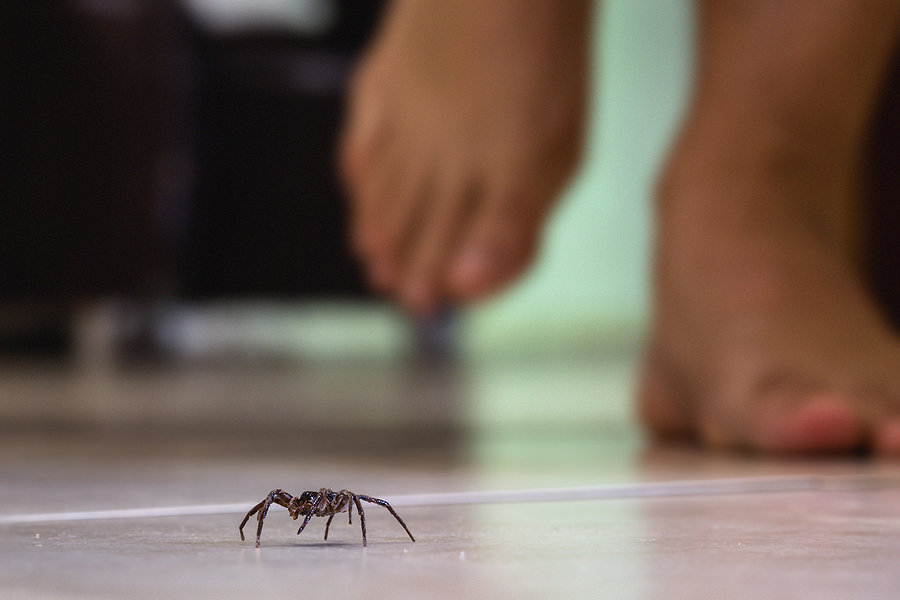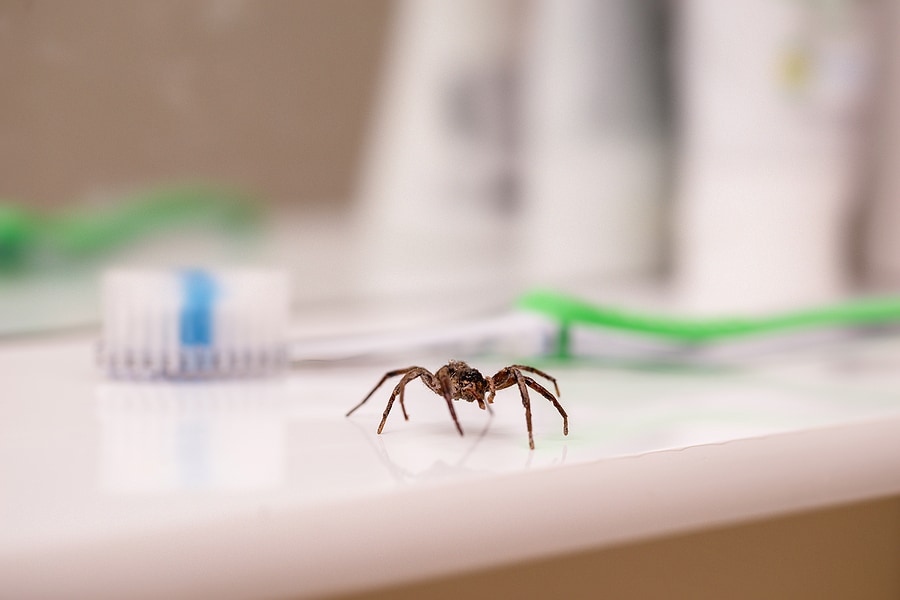READY TO GET STARTED?
REQUEST A FREE ESTIMATE
Fill out the form below or call (888) 466-7849 for a free, no-obligation estimate.

Nothing says “Halloween” like spotting a few cobwebs around the house! While it’s always fun to see cobweb decorations during this time of year, it’s not as fun having to deal with them year-round. Since the temperatures have cooled off, many spiders are looking indoors to inhabit a warmer environment. It’s important to understand common types of spiders in order to provide the best treatment if they’ve infested your home.
Brown Recluse
The brown recluse spider is light to dark brown, with a signature brown violin shape on its backs. If threatened, these spiders will bite, which can be painful and leave an open sore. If bitten, some can experience fever, restlessness, and difficulty sleeping. Brown recluse spiders can be found in debris and woodpiles. If they’ve snuck inside your home, they can often be found under furniture, inside storage items, in baseboards, closets, and crawlspaces.
Wolf Spider
Wolf spiders are dark brown with paler stripes or markings and long, spiny legs. These spiders are large and hairy across their bodies. While these spiders will bite, it’s rare that they do and are not a significant threat to humans. Inside homes, wolf spiders tend to stay near or on the floor, especially along walls and under furniture where they chase their prey instead of capturing them in their webs. If outside, they like to inhabit firewood piles, leaves, yard debris, and stones.
Common House Spider
House spiders can vary in color but are usually yellow to brown with elongated abdomens. Although not a threat to humans, they are a nuisance to have in the home as they can produce and leave behind webs throughout the house. They can often be found in ceiling corners, under furniture, and inside closets, basements, garages, and crawlspaces. If outside, you will commonly find them spinning webs around windows, under eaves, and near light sources that attract food.
By recognizing each spider species and knowing where they most often inhabit, you can utilize the correct preventative measures to eliminate the chance of an infestation. Check out some of these easy do-it-yourself spider prevention tips:

Creepy and crawly, spiders can easily sneak into homes without you noticing. Most spiders that homeowners come across are harmless; but if you don’t take precautions, you can find them infesting your home. Below are some easy, do-it-yourself tips for spider prevention.
Clean Up Clutter
Spiders tend to look for dark, secluded areas to inhabit. You can often find them in rooms that have clutter, such as basements and attics. To keep these pests from infesting, keep garages, sheds, attics, basements, and other areas that aren’t utilized very often clean and clear of clutter.
In your regularly used rooms, be mindful of leaving clothes or clutter around the house. Try to avoid leaving clothes and shoes on the floor and instead, consider storing them in plastic bins. Shake out any clothing left on the floor and in the hamper.
Repair and Seal
The smallest gap or hole can allow spiders right into your home. Look around the inside and outside of your home and search for any open holes or gaps. Inspect your window screens, doors, and siding, as these are places that can provide openings leading inside.
If you find openings, seal them as soon as possible to eliminate the chance of these pests from entering. Make sure to inspect your house seasonally and provide any repairs.
Check Before Entering
Packages, secondhand furniture, and even groceries provide a perfect gateway inside homes for spiders. These pests will often hitch a ride on these items without you noticing. Make sure to inspect all packages delivered to your porch or steps, groceries as you unload them, boxes of decorations brought in from storage, and used appliances and furniture bought secondhand.
Spotting spiders can be difficult, but once you see them or suspect that you have a problem, it’s best to call your local pest control company to help eliminate and prevent them. A service professional will inspect the exterior and interior of the home to identify and provide you with the best plan of action to treat them.